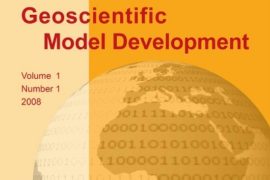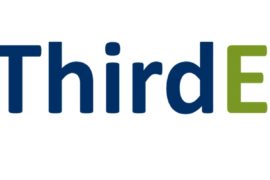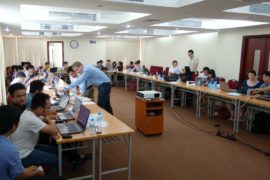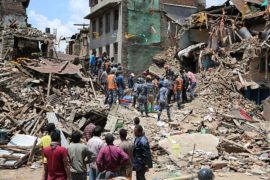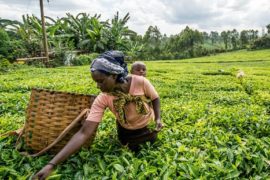Category: Uncategorized
8 July 2015
SPHY v2.0 published in Geoscientific Model Development
In response to various water-related challenges, FutureWater and its partners have developed the Spatial Processes in HYdrology (SPHY) model and applied the model in various research projects. SPHY is a state-of-the-art, easy to use, robust tool, that can be applied for operational as well as strategic decision support. We are now proud to announce that...
12 June 2015
ThirdEye project website now online: ThirdEyeWater.com
Farmers are confronted with a lack of knowledge on where and when to apply their limited resources as water, fertilizer, and seeds. A key factor in enabling an increase and efficiency in food production is providing farmers with relevant information. Such information is needed as farmers have limited resources (seed, water, fertilizer, pesticides, human power)...
4 June 2015
Successful SPHY training provided to Vietnamese water professionals in Hanoi
On June 2, 2015, Thuy Loi University in Hanoi hosted a short course for professionals from Vietnamese organizations to transfer knowledge and technology on water resources modelling. This training for professionals was organized in the framework of the NICHE project Improvement of higher education in water management in view of climatic change in Vietnam, financed...
21 May 2015
Upcoming training course: Water resources modelling using the SPHY-model (October 2015)
In October 2015 FutureWater offers a training course on water resources modelling using the Spatial Process in Hydrology (SPHY) model in Wageningen, the Netherlands. In response to various water-related challenges, FutureWater and its partners have developed the Spatial Processes in HYdrology (SPHY) model and applied the model in various research projects. SPHY is a state-of-the-art, easy to use,...
1 May 2015
Earthquake Nepal: Post-event risk and impact assessments
The magnitude 7.8 Gorkha earthquake that struck Nepal on April 25, 2015, caused extensive damage in Kathmandu Valley and severely affected Nepal’s rural areas. The Langtang Valley in the Rasuwa district was particularly hard hit, as became apparent after pictures taken by a rescue helicopter mission on April 26 (link). Numerous tourists and Nepali were,...
20 March 2015
Africa’s first Water Fund to Combat Rising Threats to Food Security, Water and Energy Supplies
This press note was released by The Nature Conservancy and covered by various media (as Reuters, SciDev, interview at CNBC). More info on the project, check our project page. The Kenya government, businesses, conservation groups and utilities launched Africa’s first Water Fund today. The Fund is designed to provide a sustained water supply to a...
2 March 2015
FutureWater in Workshop on Water Management and Rainfed Agriculture in the MENA Region
FutureWater has participated in a workshop on Water Management and Rain Fed Agriculture in the Middle East and North Africa (MENA) region, organized by Humboldt Universität zu Berlin, and the German Jordan University. The purpose of the workshop was to strengthen research efforts on this very relevant topic. Several researchers from European and North African...
20 February 2015
SPHY model published in Geoscientific Model Development “Discussions”
In response to various water-related challenges, FutureWater and its partners have developed the Spatial Processes in HYdrology (SPHY) model and applied the model in various research projects. SPHY is a state-of-the-art, easy to use, robust tool, that can be applied for operational as well as strategic decision support. We are now proud to announce that...
29 January 2015
Spatial Processes in Hydrology (SPHY) model website online
Since 2011 FutureWater is developing the Spatial Processes in Hydrology (SPHY) model: a distributed hydrological model which is used in a wide range of applications worldwide. SPHY is used successfully in many of our projects including climate change impact studies, water and energy applications, irrigation management and operational services. A new website is launched for...
22 December 2014
Training on Glacio-hydrological modelling using the SPHY model
The Hindu Kush-Himalayan region is highly dynamic as there are many socio-economic and environmental drivers at play, including climate change. The impacts of these changes challenge the resilience of natural and human capacities and environments in the region. Recent studies have shown that the Himalayan region and the downstream areas that depend on its water...
